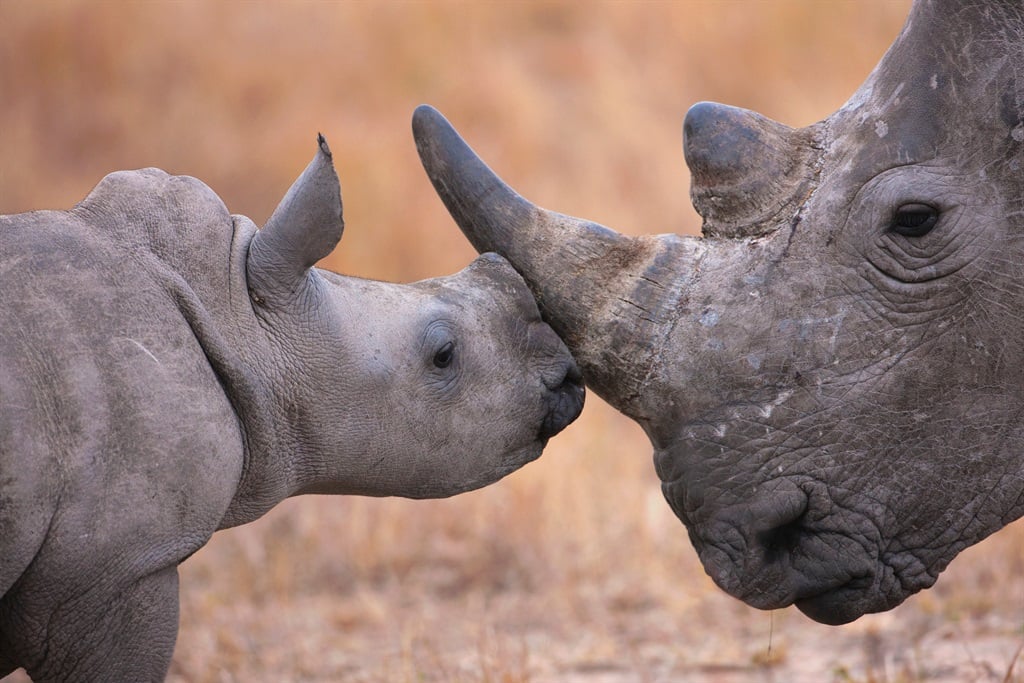
- For climate change news and analysis, go to News24 Climate Future.
Rhino poaching is on the decline in South Africa, but new fronts are rapidly opening up as illegal hunters kill increasing numbers of the endangered animals in the coastal KwaZulu-Natal province and in private reserves.
That’s prompted the country’s environment department to switch focus to the eastern Hluhluwe Imfolozi Game Reserve, a 96 000-hectare expanse of hills, from the much larger Kruger National Park, where years of intense poaching and an extended drought have decimated the rhino population — traditionally the world’s biggest.
“We have to be concerned that almost every single day this year a rhino has been killed in Hluhluwe Imfolozi,” Barbara Creecy, South Africa’s environment minister, said at the South African National Parks headquarters in Pretoria on Tuesday. “We’re also, obviously, very concerned about the displacement to private areas.”
South Africa is home to more than 15 000 rhinos out of a global population of 27 000 of the animals across five sub-species in Africa and Asia, according to the International Rhino Foundation. That’s made the country a target of syndicates that recruit and fund poachers, who saw off the horns, which are then smuggled to southeast Asia where buyers believe it can cure cancer and boost virility.
The horn is made up primarily of keratin, the same substance that makes up human hair and nails.
The number of rhinos poached in South Africa fell 11% to 231 in the first six months of this year, Creecy said. South Africa’s animals are mostly white rhinos, the larger of two sub-species native to Africa, although it has smaller numbers of black rhinos.
While only 42 animals were killed in Kruger, which lies on South Africa’s eastern border, 143 were poached in KwaZulu-Natal, up from 33 in the same period two years ago, and 46 were poached in private reserves elsewhere.
Park authorities are now trying to ensure that the fence around the Hluhluwe park is intact and the national environment department and Ezemvelo KZN Wildlife, the provincial parks authority, are seeking finance to dehorn the animals in a bid to limit poaching, Creecy said.
She declined to comment on the numbers of rhinos in individual parks, saying such information could be used by poaching syndicates.
She said:
South Africa currently stockpiles rhino horn, the international trade of which is illegal, but is developing a discussion paper that could recommend how best to dispose of it, according to the minister.




 Publications
Publications
 Partners
Partners












